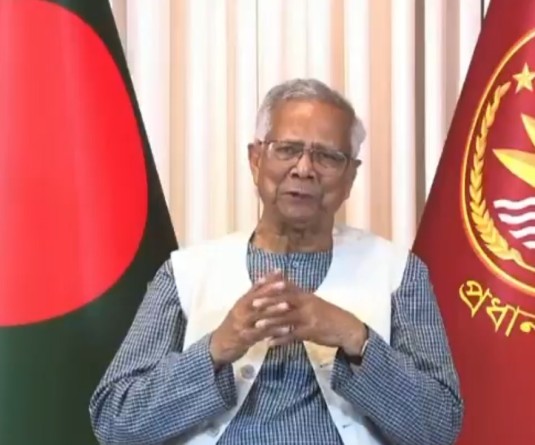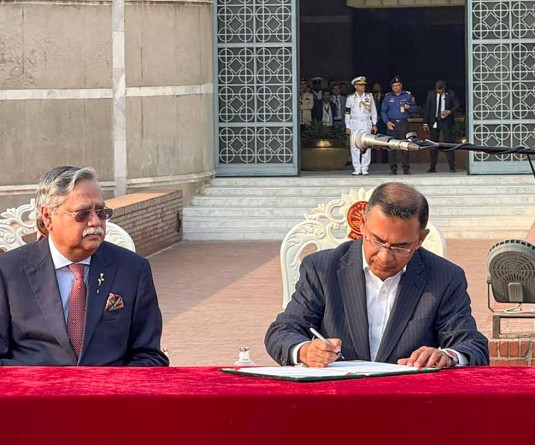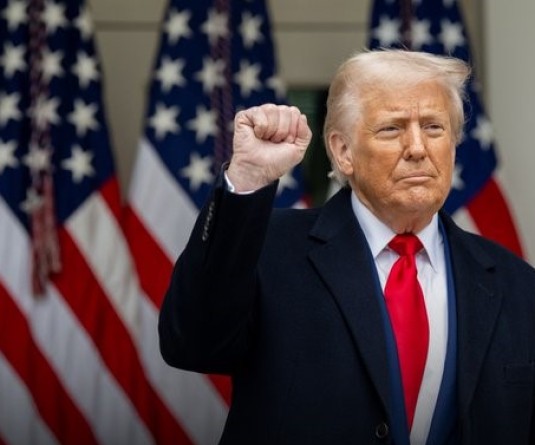President Joe Biden delivers remarks to State Department staff, Thursday, Feb. 4, 2021, in Washington. (AP Photo/Evan Vucci)

Washington, February 4 (AP): President Joe Biden will make clear Thursday that the world should expect a more diplomatically engaged United States moving forward, starting with him putting the brakes on Donald Trump's plan to withdraw thousands of US troops from Germany.
Biden will also announce in a speech at the State Department that the US will stop supporting Saudi Arabia's military offensive in the long-running war in Yemen in hopes of ending one of the world's worst humanitarian crises, White House national security adviser Jake Sullivan said.
We must meet this new moment of accelerating global challenges from a pandemic to the climate crisis to nuclear proliferation challenges that will only be solved by nations working together in common cause, Biden will say, according to excerpts of the speech released by the White House.
Biden's most public diplomatic efforts of his young presidency will signal to the world that America's back after four years in which Trump pressed an America First mantra.
Trump last year, despite congressional resistance, announced plans to redeploy about 9,500 of the roughly 34,500 US troops stationed in Germany, which hosts key American military facilities like the Ramstein Air Base and the headquarters for US European Command and US Africa Command.
Trump announced the pullback after repeatedly accusing Germany of not paying enough for its own defence, calling the longtime NATO ally delinquent" for failing to spend 2% of its GDP on defense, the alliance benchmark.
No reductions or changes have been made to U.S. troop levels since Trump's announcement. Defence Secretary Lloyd Austin hinted at a likely reconsideration of the order in a conversation with his German counterpart last week, chief Pentagon spokesman John Kirby said.
Austin told German Defence Minister Annegret Kramp-Karrenbauer that the US would make its decision in consultation with her and her government, Kirby said. German officials have hoped that the order would be rescinded by the new administration.
During Thursday's visit to the State Department, officials said, Biden also plans to announce that he will increase the cap on the number of refugees allowed into the United States to more than eight times the level at which the Trump administration left it.
Trump drastically reduced the refugee admissions cap to only 15,000 before he left office. Biden's plan would raise that number to 125,000, surpassing the ceiling set by President Barack Obama before he left office by 15,000.
The timing of Biden's visit so early in his term is deliberate, as much symbolic as it is a nod to his interest in foreign policy and his years as chairman of the Senate Foreign Relations Committee when he represented Delaware.
Trump had waited more than a year to visit the department, making his first appearance only for the swearing-in of Secretary of State Mike Pompeo in 2018, and repeatedly assailed it as part of a deep state out to undermine his administration. Trump denigrated and dismissed its employees and unsuccessfully tried over multiple years to slash its budget by up to 35%.
Biden, by contrast, chose longtime confidant Antony Blinken to be his secretary of state, aiming to reinvigorate an American diplomatic corps that had been depleted and demoralized under four years of the Trump administration.
He will be greeted by employees eager to hear that diplomacy has returned to the top of the presidential agenda and that the expertise of long-serving foreign service officers will be valued. Although Biden's first nominations and appointments to senior positions at State have trended heavily toward political appointees, the president and Blinken have pledged to promote career staffers.
To that end, the Biden administration is set to name a longtime U.S. diplomat for the Middle East, Tim Lenderking, as its special envoy in Yemen. The move comes as Biden is searching for a diplomatic end to the Saudi Arabia-led military campaign that has deepened humanitarian suffering in the Arabian peninsula's poorest country. A person familiar with the matter confirmed the selection, speaking on condition of anonymity ahead of the announcement.
Lenderking, a career foreign service member, has served in Saudi Arabia, Kuwait and other countries in the Middle East and elsewhere.
The State Department visit comes after Biden moved on Wednesday to extend the last remaining treaty limiting Russian and American stockpiles of nuclear weapons, acting just two days before the pact was set to expire. It also follows days after a coup in Myanmar that has emerged as an early proving ground of Biden's approach to multilateralism.
Biden may also address asylum claims for residents of Hong Kong, according to one official. He indicated during his campaign that he was interested in providing protection to people persecuted by the Chinese government.
Officials said Biden would not necessarily override the record low refugee cap of 15,000 that Trump set for the current budget year. Instead, the 125,000 figure would be proposed for the budget year beginning Oct. 1. The president is required by law to first consult Congress on his plans before making a determination.






